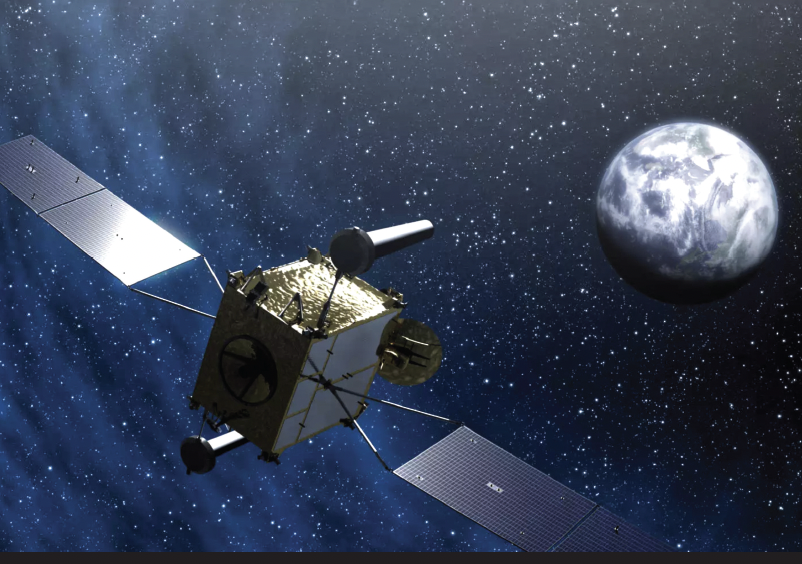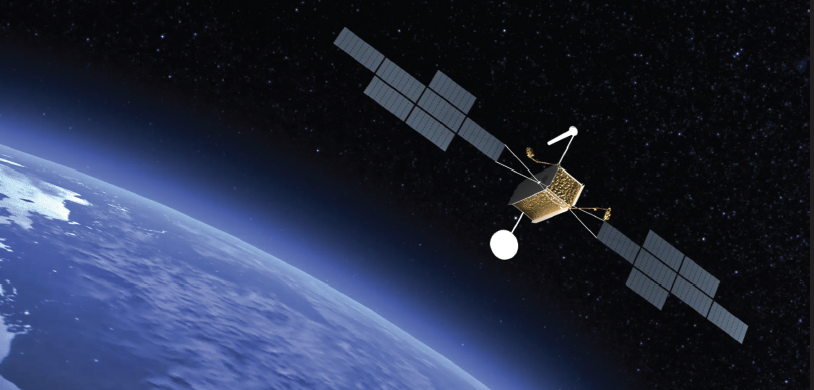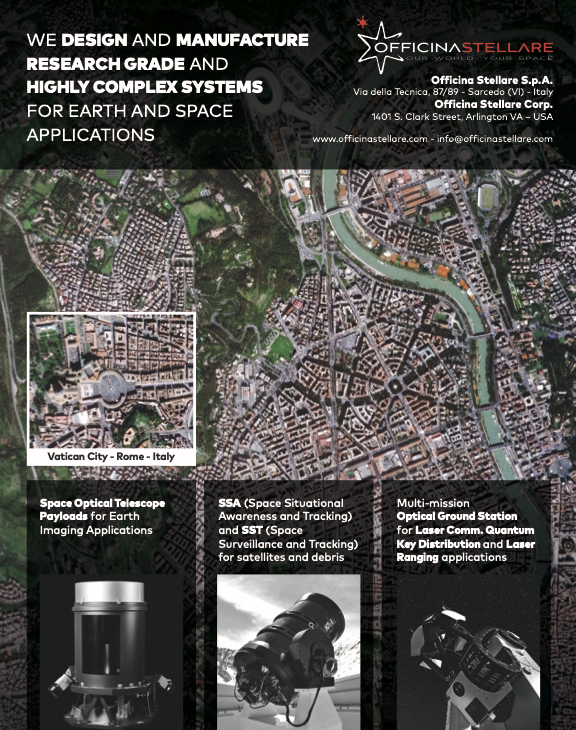Chris Forrester, Senior Columnist
A report in German daily newspaper Handelsblatt suggests that the German army (Bundeswehr) is backing an alternate orbiting satellite system and may not be at all keen on the EU-backed IRIS2 (Infrastructure for Resilience, Interconnectivity and Security by Satellite) scheme.

A presentation made by Major-General Jürgen Setzer (Vice Chief of German CIDS/ Cyber and Information Domain Service, at the GOVSATCOM 2025 event in Luxembourg) told delegates that on the battlefield of the future, “space-based activities are setting the conditions for victory”.
He indicated that the Bundeswehr wanted their own Mid-Earth, orbiting fleet of 12 to 24 satellites to be in place by 2032, as well as up to three geostationary (GEO) craft (COMSATBw 1B and 23B and a potential COMSATBw 3) “Bundeswehr owned” as well as a Low Earth (LEO) orbiting fleet.
His presentation acknowledged the possible role of the German Federal Government “if applicable” in IRIS2 but that the German army’s plan was for it to have overall multiorbital access in place by 2035. That date is later than the planned availability of the IRIS2 project, which is likely to initiate streaming around the end of this decade..
However, the newspaper report suggests that the German army is planning for its own LEO constellation of several hundred satellites for communications, Earth Observation (EO) and secure signals intelligence.
The report says that, once the new German parliamentary government is in place by the end of April, then Federal funds will be allocated for the army’s scheme.
The previous German government made no secret of its distaste for IRIS2. Germany’s Vice Chancellor Robert Habeck is on record as saying Germany wants to suspend the IRIS2 satellite project. Habeck wrote a letter to the EU executive in April 2024 claiming that the IRIS2 scheme is too expensive; that the work isn't fairly divided between France and Germany; and that the planned services aren't sufficiently advanced to be worth the expense.

If the German alternate proceeds, then the next question asks, who might build the satellites? Airbus is always a potential supplier, but so is German-based OHB that is headquartered in Bremen, which is a European space and technology group specializing in the development and implementation of complete space systems.
However, now Italy might have joined the ‘exit club’ of European nations who are spending their own cash on alternate satellite systems. During early April the Italian government approved Phase 2 of a feasibility study exploring the possibility of the country developing its own 100 satellite constellation. In late 2024, the Interministerial Committee for Space and Aerospace Policies (Comint) tasked the Italian Space Agency (ASI) with conducting a feasibility study on the development of a new satellite constellation.
The ASI delivered its initial report in March and, on March 28th, the Ministry of Business and ‘Made in Italy’ organization announced that it would move ahead with Phase 2.

Artistic rendition of SATCOM Bw on-orbit,
more than 10 years serving the German
Armed Forces
“ASI will meet with our companies to understand if they are capable, on their own, of creating the constellation,” said the Minister for Business and Made in Italy, Adolfo Urso.
Phase 2 is expected to be completed by September, after which a more detailed projection of the project, including its potential costs and timetable, will become clear.
Italian financial newspaper Il Sole 24 Ore has reported that the Italian project would contain around 100 satellites and could be delivered within five years. It also claimed that, in addition to meeting its own demands, the Italian government has proposed offering the service to other countries.
A report from Reuters confirms this, saying that the Italian scheme, should it go ahead, would be in full orbit by about 2031, which is approximately when IRIS2 is likely to be fully ready if the program sticks to its proposed timetable.

Artistic rendition of SATCOM Bw3 on-orbit.
The next item in the newsflow will likely occur once the new German parliamentary government is in place at the end of April. We are then likely to get a firm decision—one way or another—on where IRIS2 fits within the nation’s overall plan.
The IRIS2 SpaceRISE consortium comprises Eutelsat, SES and Hispasat, and they’ll use suppliers such as Airbus and Thales-Alenia to bid for fleet construction.
On March 26th, Eutelsat Group CEO Eva Berneke spoke to the Defense Committee of the French National Assembly and explained that the EU scheme will need to look again at terminal equipment costs, and be tougher in a drive to reduce equipment costs down to 500 euros, whereas Eutelsat’s OneWeb equipment costs for their less expensive model are nearer 3,000.
The timetable for IRIS2 is tough—while OneWeb’s 650 satellites are already in place, the scheme demands a Generation 2 LEO satellite fleet. SES is obliged to build a new fleet of mPOWER, mid-Earth orbiters for its contribution, while each of the three main satellite players will then use their GEO fleets to supply connectivity for IRIS2, which the European Union (EU) wants to enter operations around the end of this decade.
IRIS² (Infrastructure for Resilience, Interconnectivity and Security by Satellite) is a planned multi-orbit satellite internet constellation to be deployed by the European Union by 2027. Initial government services are expected to start in 2030.
IRIS² will consist of 264 satellites in low Earth orbit (LEO), at an altitude of 1,200 km, and 18 satellites in medium Earth orbit (MEO), at 8,000 km.
In October of 2024, the European Commission (EC) announced that the concession contract to develop, deploy and operate IRIS² had been awarded to SpaceRISE, a consortium of three European satellite operators—SES, Eutelsat and Hispasat—which would rely on a core team of eight European space and telecommunications companies as subcontractors; Thales Alenia Space, OHB, Airbus Defence and Space, Telespazio, Deutsche Telekom, Orange, Hisdesat and Thales SIX.
The EC stated that IRIS² would be funded by the EU, the European Space Agency (ESA) and private financing, and that the satellite constellation would be comprised of 290 satellites in multiple orbits, with the governmental services expected to start operations in 2030. The contract with SpaceRISE was signed in Brussels on December 16, 2024.

Chris Forrester
Author Chris Forrester is the Senior Columnist and Contributor for SatNews Publishers and is a well-known broadcasting journalist and industry consultant. He reports on all aspects of broadcasting with special emphasis on content, the business of" "television and emerging applications.


